Part 3 Candidate Responsibilities
Terms of Certification

You must agree to follow all National Registry policies, processes, and procedures. When you submit the application, you are saying that you have read, understand, and agree to follow them.
These policies contain important information about how certification works, and your rights and responsibilities as a candidate. It is your responsibility to read and understand them.
Terms of Certification
Requirements
Individuals applying for AEMT certification must meet the following requirements:
- Hold a current National Registry certification or state license at the EMT level or higher
- Successful completion of a state-approved AEMT course that meets or exceeds the National Emergency Medical Services Education Standards for the AEMT
- Candidates must have completed the course within the past two years and the course Program Director must verify successful course completion on the National Registry website
- As of July 1, 2024, candidates are required to meet Recommended AEMT Student Minimum Competency (SMC) Matrix.
- Successful completion of the certification examination. Examination results remain valid for 24 months.
Code of Conduct
For you to gain National Registry certification or recertification, the Code of Conduct requires that you:
- Comply with all policies and rules of the National Registry
- Provide full, truthful, and updated information to the National Registry on any application for certification or recertification or in any other communication to the National Registry
- Provide accurate documentation of the training requirements for certification
- Accurately represent to the public your Registry certification status
- Adhere to the highest standards of professionalism and ethics
- At all times, be eligible for or hold a current, full, and unrestricted license to practice as an EMS clinician under the laws of the licensing or authorizing agency of the jurisdiction(s) in which you practice
- Protect the security and integrity of the Registry certification and examination process You will not copy, reproduce, disclose, disseminate, or remove any examination-related materials from the test site or attempt to do so
Updating Your Personal Information

You must notify the National Registry within 30 days of any of the following:
- A change in address, email address, telephone number, state of employment, and/or licensure (through your online Registry profile)
- Any change that might impact eligibility for certification or recertification including but not limited to:
- Any disciplinary action by any authorizing or licensing body that has resulted in the suspension, revocation, or any restriction placed on the individual’s license or right to practice
- Any voluntary surrender of any healthcare certification or license while under investigation or instead of disciplinary action
Policies
To learn more about the National Registry policies please visit, our general policies page.
Here you will find more information including but not limited to, the certification policies, eligibility, and examinations.
Here you will find more information including but not limited to, the certification policies, eligibility, and examinations.
Peace Officer Policy
This is a Pearson VUE test center policy. Please contact Pearson VUE with any questions.
A Peace Officer (a person whose primary duties involve the enforcement of laws and preserving the public peace, including, police officers, sheriffs, deputy sheriffs, marshals, correction officers and special agents) taking a National Registry examination, may carry their firearm into the testing center where the individual testing center permits firearms in their facilities.
Except for the circumstances set forth above, weapons of any kind (firearms, batons, tasers etc.) are not permitted inside the testing centers. Some testing centers may, in accordance with local law, prohibit firearms in their facilities. All Peace Officers should be prepared to present their Peace Officer identification or credentials if they wish to carry their firearm into the testing center. Individual testing centers may be contacted by phone to inquire about the firearm policy for Peace Officers.
In the event the Peace Officer is testing at a test center that does not permit firearms in their facility, the firearm will not be permitted. Firearm(s) are not allowed to be stored in the test center. The Peace Officer will be given the option to reschedule their examination.
A Peace Officer (a person whose primary duties involve the enforcement of laws and preserving the public peace, including, police officers, sheriffs, deputy sheriffs, marshals, correction officers and special agents) taking a National Registry examination, may carry their firearm into the testing center where the individual testing center permits firearms in their facilities.
Except for the circumstances set forth above, weapons of any kind (firearms, batons, tasers etc.) are not permitted inside the testing centers. Some testing centers may, in accordance with local law, prohibit firearms in their facilities. All Peace Officers should be prepared to present their Peace Officer identification or credentials if they wish to carry their firearm into the testing center. Individual testing centers may be contacted by phone to inquire about the firearm policy for Peace Officers.
In the event the Peace Officer is testing at a test center that does not permit firearms in their facility, the firearm will not be permitted. Firearm(s) are not allowed to be stored in the test center. The Peace Officer will be given the option to reschedule their examination.

